Hot Springs Documentary Film Festival’s Executive Director On Goals For Fest And His Dream Guests – A President And Near President
- Oops!Something went wrong.Please try again later.
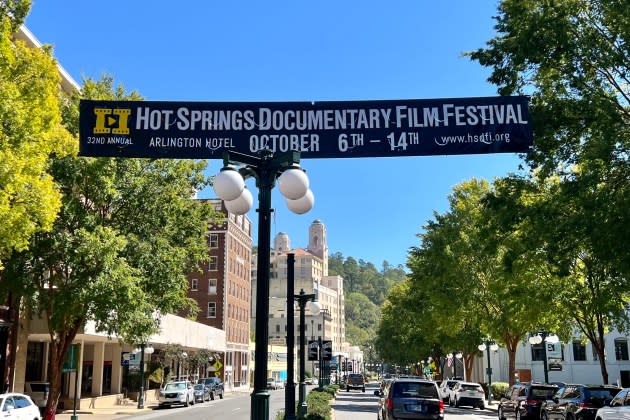
EXCLUSIVE: In search of compelling content for its 32nd edition, the Hot Springs Documentary Film Festival in Arkansas went as far afield as Afghanistan, and as close as Little Rock.
As part of Tuesday’s Filmmaker Forum — an inaugural program at the festival supported by the Corporation for Public Broadcasting — HSDFF presented a panel called “Making History: The Little Rock Nine, Eyes on the Prize, and a National Historic Site.” Panelists included civil rights activist Elizabeth Eckford, who as a teenager in 1957 was one of nine African American students who desegregated all-white Little Rock High School.
More from Deadline
Hot Springs, the longest running all-documentary film festival in North America, kicked off October 6 and runs through Saturday. The film program, featuring several world premieres, boasts documentaries from the U.S., the U.K., Estonia, Scandinavia, Kenya, Bolivia, and Tunisia, among other countries. Hollywoodgate, about the Taliban takeover of Afghanistan post-departure of U.S. forces, screened at the festival on Monday, a couple of days after winning the Focus Competition at the Zurich Film Festival in Switzerland.
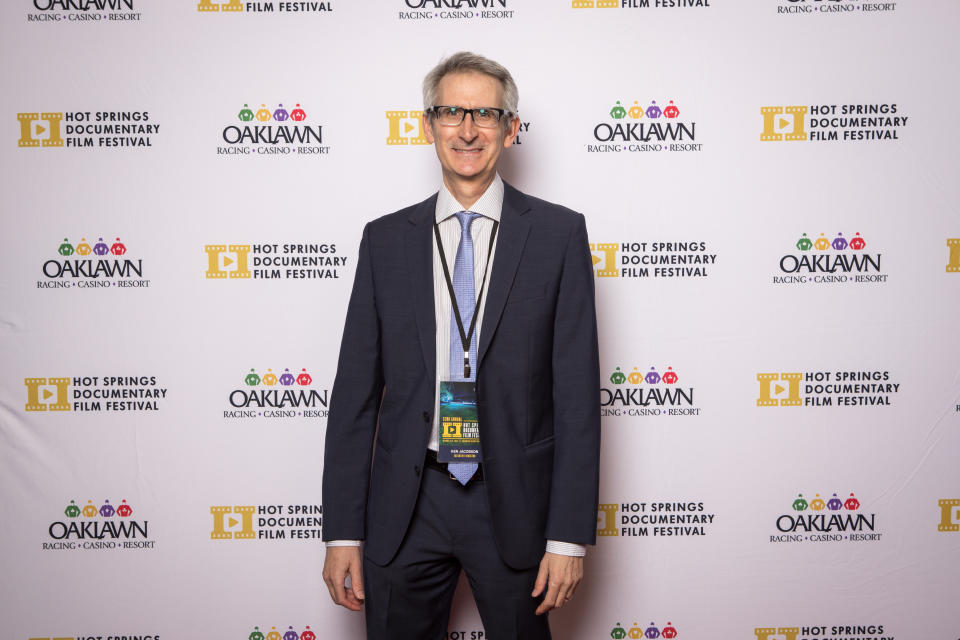
This year’s festival marks the first under the leadership of executive director Ken Jacobson, who was appointed last November.
DEADLINE: How would you describe your goals for the festival?
Ken Jacobson: My goals for Hot Springs are to really try to do two things simultaneously: One, to lean into the regional aspects of this event, which features Southern stories and Southern filmmakers — and by Southern, I mean Southern and mid-Southern. And also to do more to give us a bigger national profile. Both of those things are equally important and necessary, kind of vital to our continued success. Just about everything I do is with those two lenses on — what are we doing regionally to support Southern and mid-Southern filmmaking and filmmakers and reach our audiences here, and what are we doing to connect with the national documentary ecosystem.
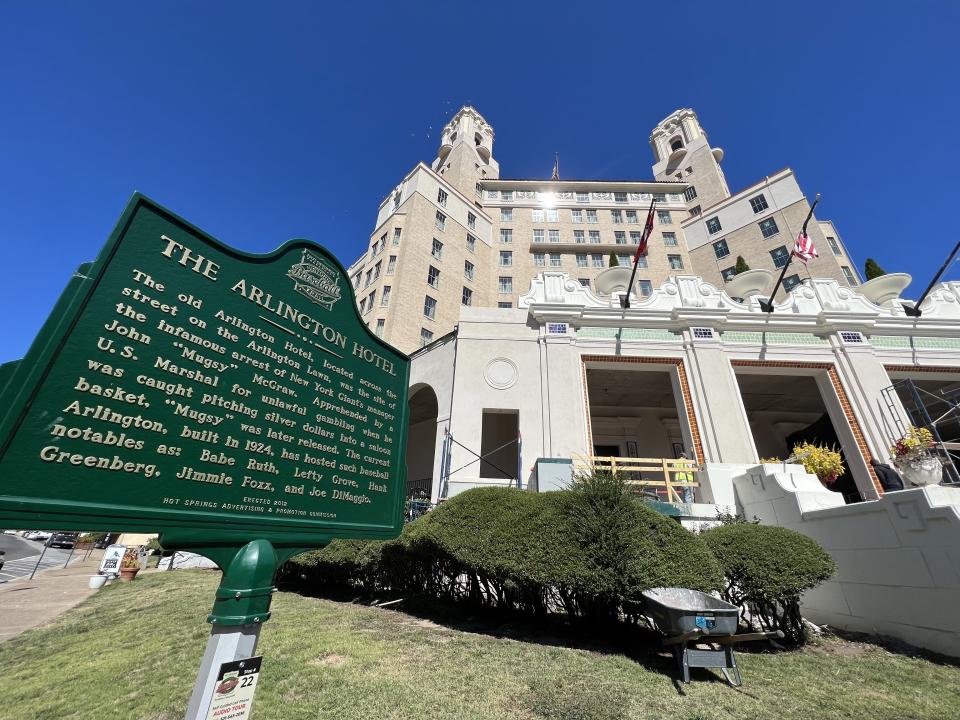
[We spoke on the steps of the Arlington Hotel, a nearly 100-year-old property built at the height of Hot Springs popularity as a spa destination, that serves as the main venue for the film festival. As if on cue – in the context of reaching audiences – a woman who identified herself as Melissa spotted the festival credentials hanging from Jacobson’s neck and my neck and said, “Could we get some free tickets later? We’re from here and I’ve never even been.” Jacobson replied, “I don’t have any on me, but I could probably hook you up if you come back later.” Melissa kindly noted, “Ya’ll are handsome.” The town and the people exude that friendly vibe].
DEADLINE: In terms of other festivals that are considered regional, are there any that you look at as inspirational and you feel are accomplishing some of what you would like to accomplish?
KJ: Certainly, the New Orleans Film Festival over the years, I’ve just watched and admired what they’ve been able to accomplish in terms of being a great resource for filmmakers in New Orleans and Louisiana and throughout the South and what they’ve been able to do with their South Summit and their artist support programs. And I definitely view them as a model in terms of just supporting filmmakers in the region and bringing a national focus to what they’re doing. We wouldn’t call them a regional festival, but True/False has such a wonderful relationship with the community of Columbia, Missouri that I’ve always greatly admired. And you bring the filmmakers and industry into that mix and it’s just a really magical place. I love the ideas that drive that festival. Also, Camden [the Camden International Film Festival in Maine] does such a great job in terms of its industry program with the Points North Forum — that’s an element that I really wanted to bring to Hot Springs. I would also add Big Sky into that mix with their Doc Shop. Those are both definitely direct reference points for me.
I would also say a festival like Sidewalk in Birmingham… from afar I’ve admired what they’re able to do with very limited resources. And I also would say BlackStar [in Philadelphia]… they have become such an incredibly important event in the industry. I’m always looking at their lineup, their website, who the guests are, because they think what they’re doing is terrific.
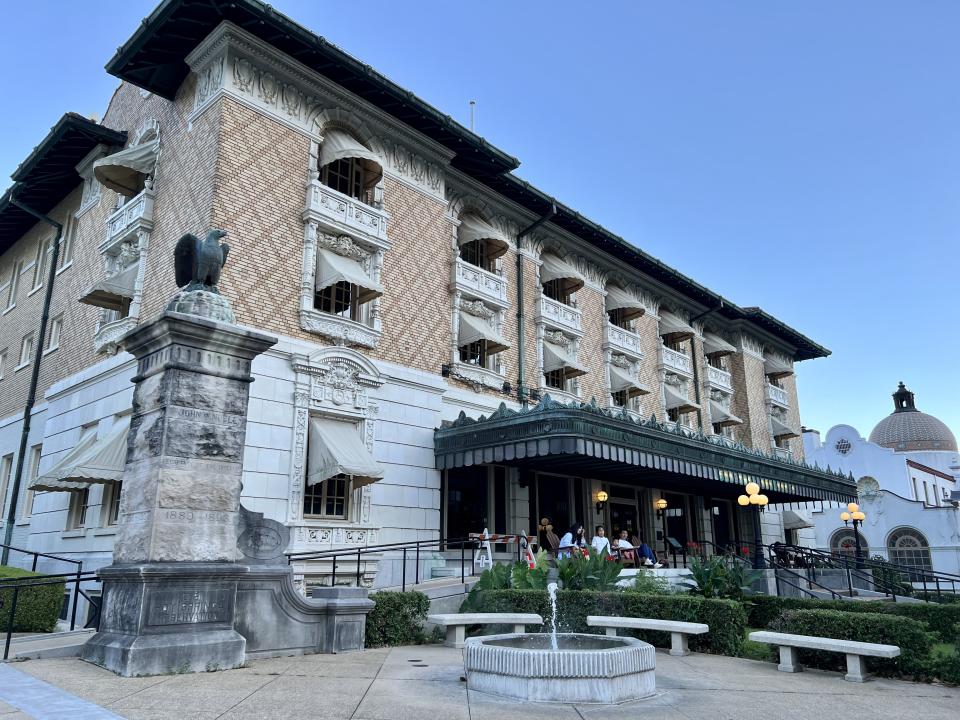
DEADLINE: One of Camden’s assets as a festival is the beautiful location on coastal Maine. In Hot Springs, you’ve got a town with incredible history as a resort, even if perhaps on a national level not too many people realize that.
KJ: It’s one of the things that attracted me to this position. [Initially] I knew very little about it, but the more I discovered, the more I was awestruck by what I was learning. We’re in a national park, the Hot Springs National Park. We literally are having this interview less than a hundred yards from the border of the national park, which is right across the street. All the natural beauty and really the majesty of the national park system is right here. It’s kind of baked into our festival. And you have these glorious mountains here on either side. So, there’s plenty of opportunities for filmmakers to hike and to check out the bathhouses, which have been here since the 1850s on national park ground. And then you have a really fascinating local history, which involves things like illegal gambling and also baseball — Spring Training got started here. Plus, the great weather, it is a mecca for tourists, but I would say many of those tourists come from other points in Arkansas or regional places like Dallas, Memphis, Louisiana, Tulsa. People do know about Hot Springs, but I would agree with you that its national profile is probably not what maybe some other resort towns have, but definitely it has been expanding in recent years.
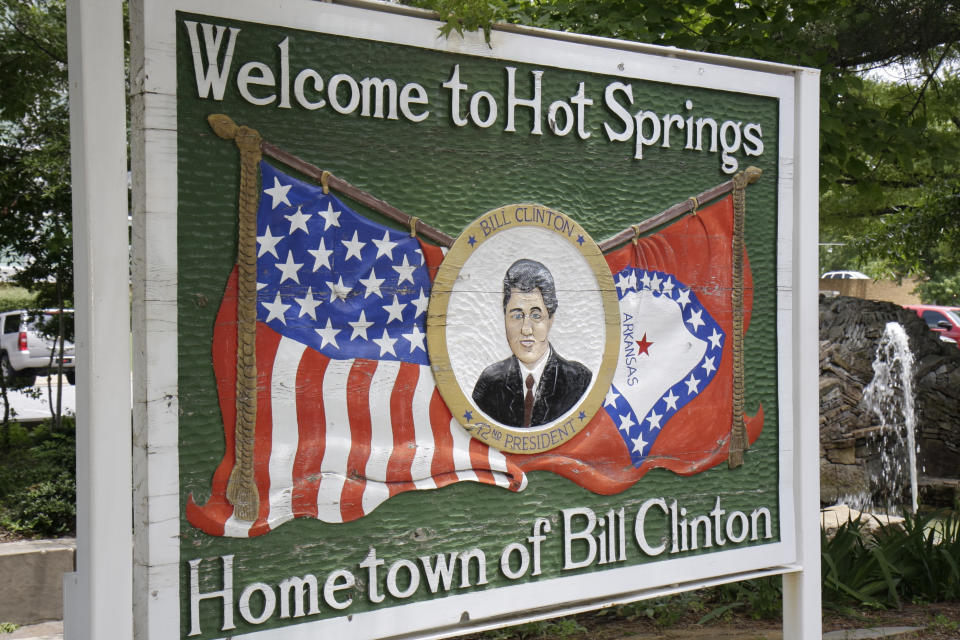
DEADLINE: Back in the 90s when Bill Clinton was president, it would’ve got more attention because of his connection to Hot Springs.
KJ: That’s right. A lot of people associate Clinton with Hope [Ark.]. That was sort of the campaign slogan, “The man from Hope.” But he moved here when he was really young, so his formative youth was in Hot Springs. He went to elementary, middle, and high school here. So much of who he became, his interest in politics, was [developed] when he was here in Hot Springs. It’s a goal of mine to bring him to the festival.
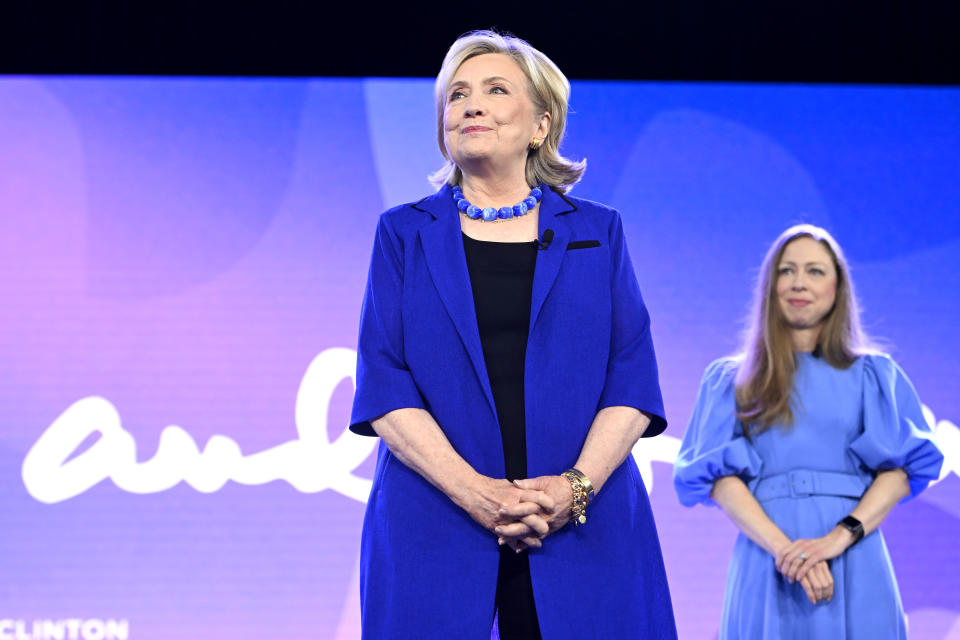
DEADLINE: That was going to be my next question because, of course, Hillary Clinton and Chelsea Clinton are getting very much involved in filmmaking. They are executive producers of this Irish documentary, In the Shadow of Beirut, that was shot in Lebanon and has been chosen as Ireland’s official entry for the International Film category of the Oscars. It’s like, “Hey, Bill and Hill and Chelsea, come on down to the festival.”
KJ: HiddenLight Productions, Hillary and Chelsea’s film production company, I think they would be just a natural fit for participating in the festival and in our Filmmaker Forum. And that’s another goal is to have them involved next year.
DEADLINE: What do you see as the importance of film festivals to the documentary field specifically?
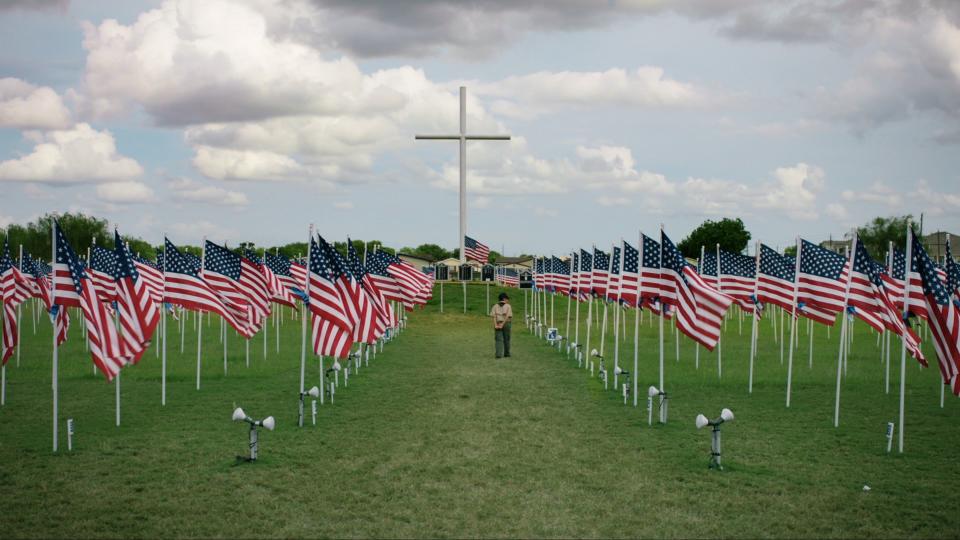
KJ: I think documentary festivals are critical in making the connection between filmmakers, the documentary industry and audiences. To me, that triad is kind of sacred, almost. It’s like a bond, a relationship of partners. They all need each other, I would say, equally. And the festival is kind of the place that makes that happen. People can watch documentaries at home. They have tons of choices. Why come to a documentary film festival? Well, for one, we’re showing things that are not always getting distributed widely on the streamers or broadcasters. But number two, we’re bringing the filmmakers, we’re bringing the subjects of the film. As we’re speaking, we’re showing the world premiere of the docuseries A Town called Victoria, which is going to be on PBS’s Independent Lens next month. And two of the major characters in the movie came here from Turkey for the world premiere, along with the filmmakers, as well as the distribution partners. The kind of only place that could have happened was a documentary film festival. And [the series] is set in Victoria, Texas, so it’s part of the South, the mid-South region. It just is a natural fit for us to host that.
I would also add, clearly with the current situation with distribution, that filmmakers need festivals more than ever to reach audiences and to gain attention for their films. Festivals are not a substitute for distribution, but they are a way to launch films, to bring audiences in contact with those films and with those filmmakers, and act as kind of the vanguard for those projects, and hopefully help spread the word and create buzz and launch them toward full distribution.

DEADLINE: This year, the festival’s honorary chair is Mary Steenburgen, a homegrown talent, an Arkansas girl, Oscar winner. How did you land her as honorary chair?
KJ: We have a history of having an honorary chair who is often a celebrated actor or actress or filmmaker or just someone in the public eye. And this year, Mary Steenburgen was always the one that I wanted to get because she is one of the participants in Arkansas PBS’s wonderful new docuseries, Southern Storytellers. For me, what was just the perfect combination of factors and timing was you have a famous Arkansan, a beloved Arkansan, Mary Steenburgen, who’s in a documentary, which is produced by Arkansas PBS, it came out a couple of months ago. It’s directed by Craig Renaud, who was born in Little Rock, still has strong ties here. I worked closely with Craig and Courtney Pledger, CEO of Arkansas PBS — who coincidentally or not so coincidentally is a former executive director of this festival. And they worked tirelessly on our behalf to reach out to Mary and see if she could work it out with her schedule. Thankfully, she could. And it’s just incredibly generous of her to come out here for us. And I know our audiences are really thrilled that she’ll be participating in a panel about Southern Storytellers [on Friday] with Craig, with Courtney, and with two other featured participants in that series.
Best of Deadline
Sign up for Deadline's Newsletter. For the latest news, follow us on Facebook, Twitter, and Instagram.

